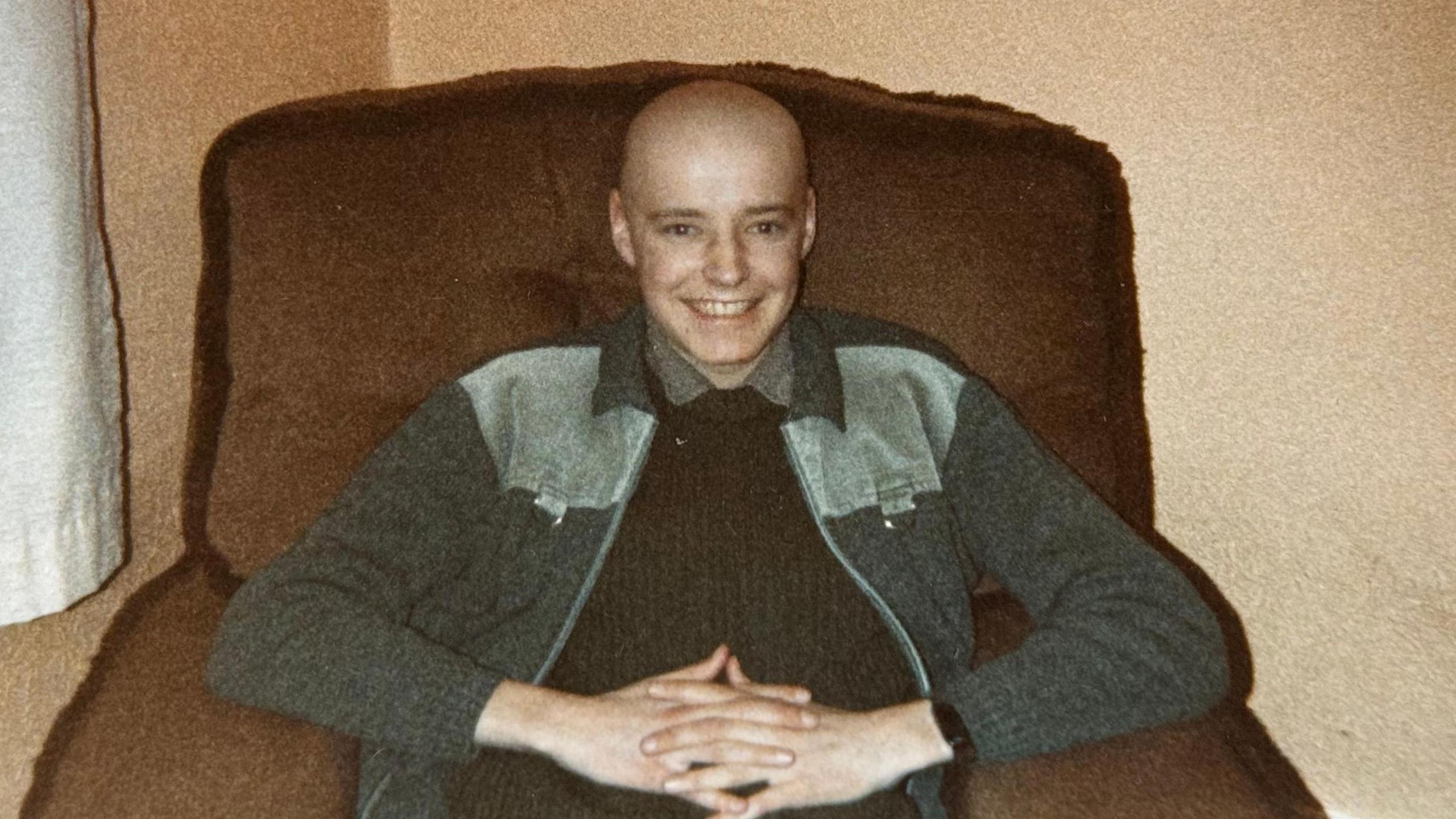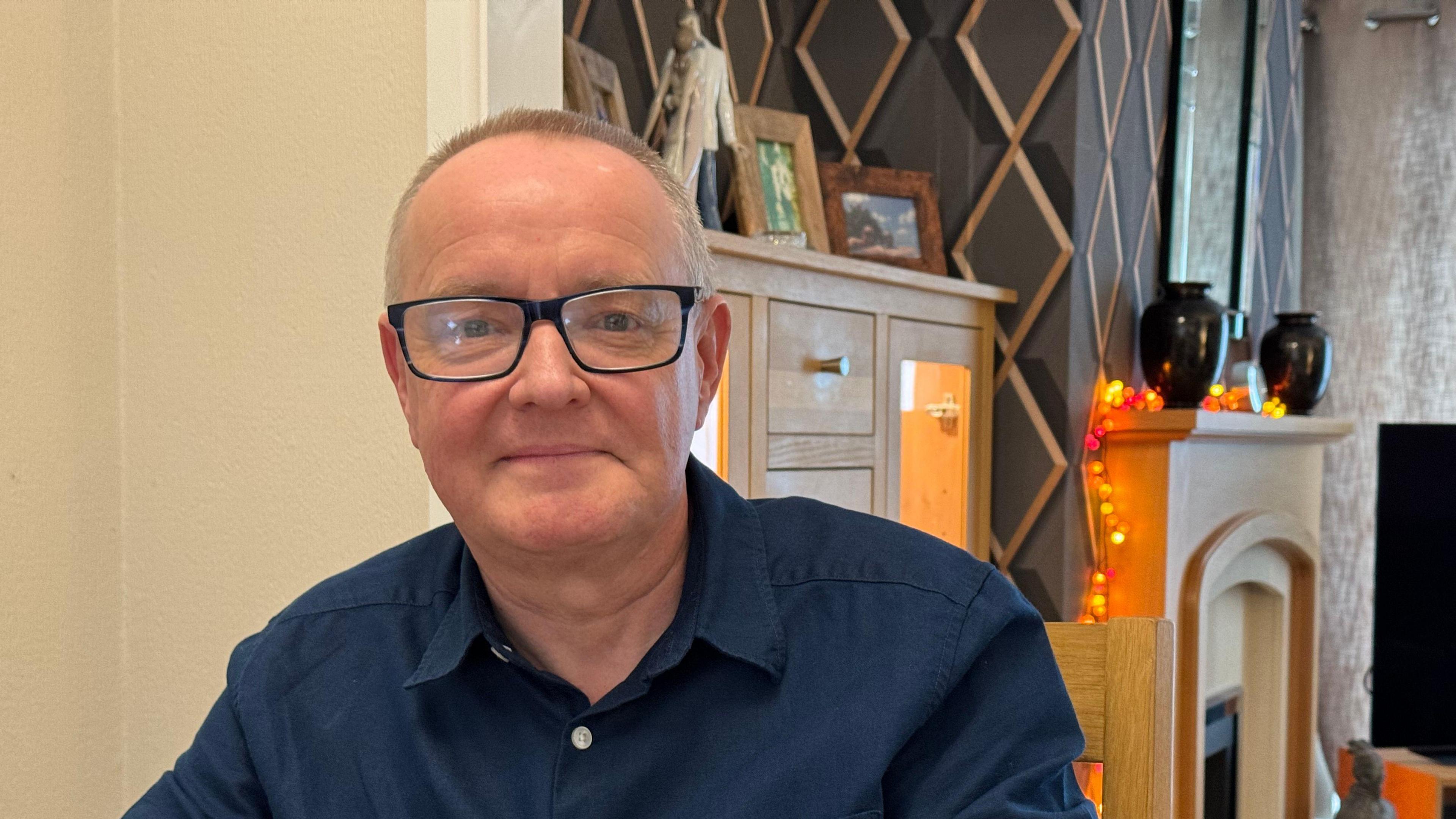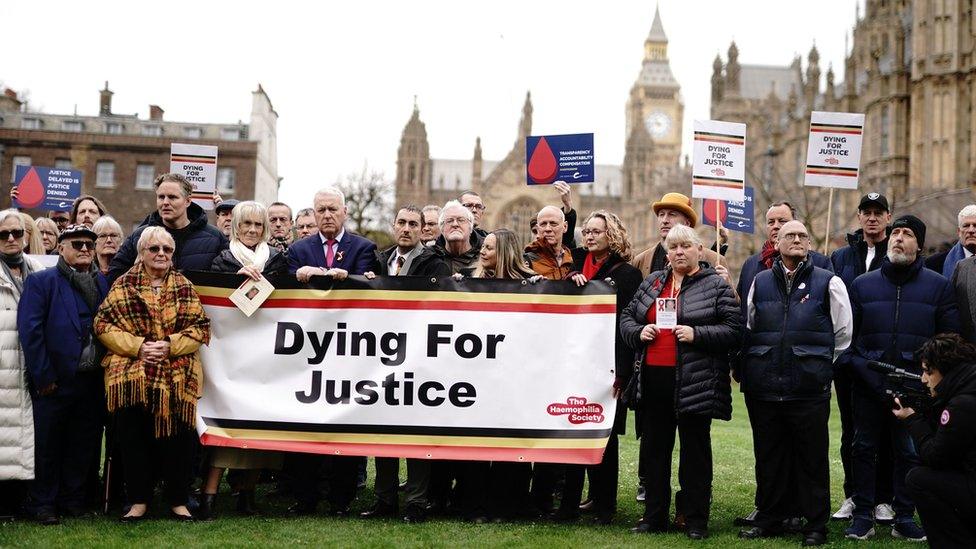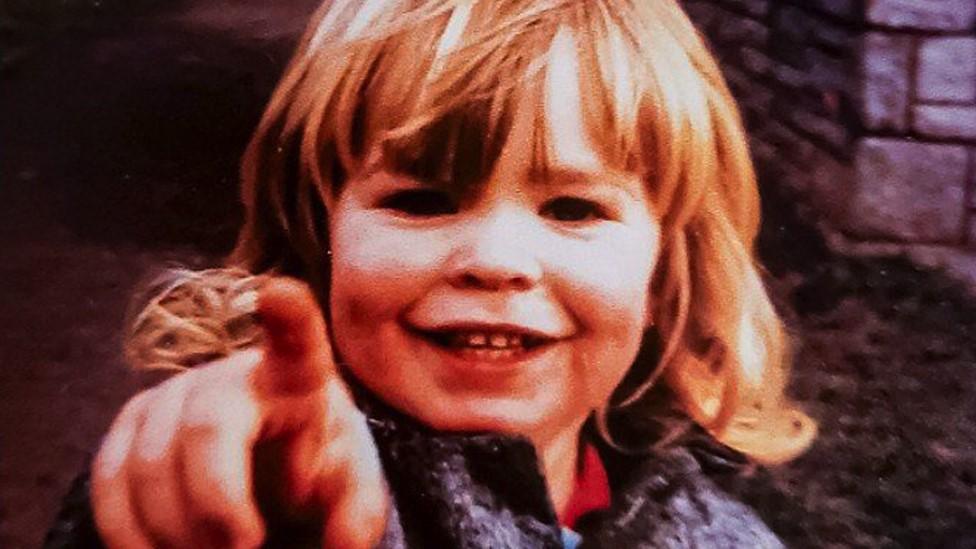Infected blood victim calls for faster compensation

Mr Hall received leukaemia treatment as a teenager
- Published
A man who was infected with contaminated blood has accused the government of dragging its feet when it comes to compensation.
Stuart Hall from Stainburn, Workington, in Cumbria, contracted hepatitis C from a blood transfusion in the 1980s while being treated for leukaemia.
He said he was left with serious health problems, including cirrhosis and liver cancer and needed a liver transplant in 2021.
The government described what happened as an "appalling tragedy" and said it had "consistently accepted the moral case for compensation".
Retired council officer Mr Hall said it was "a life sentence" because he was "always thinking about it".
"When you have a virus that you know is attacking the liver and it’s years and years down the line and you know where it can potentially end up - it’s always on your mind," he added.
More than 30,000 people in the UK are believed to have been infected with HIV or hepatitis C from contaminated blood or blood products in the 1970s and 80s, and about 3,000 have died.
Mr Hall said the government was taking too long to sort out compensation for victims.
“I think the bill is potentially enormous for the government," he said.
"And I really feel that the government is trying to kick this can as far down the road as they can kick it.”

Mr Hall contracted hepatitis C from a blood transfusion
Another victim, Barry Flynn, 65, who has severe haemophilia, said contaminated blood has had a devastating impact on his family.
The retired accountant, originally from Whickham, Gateshead, but now living near Wilmslow in Cheshire, was infected with hepatitis C from contaminated blood products in the 1980s.
His younger brother Michael, also a severe haemophiliac, was infected with both hepatitis C and HIV.
He and his wife Lesley later died as a result.
“He died knowing he’d infected her, totally unwittingly. They were in their late 20s, early 30s, they had their lives before them,” said Mr Flynn.
He said victims of the scandal were let down.
“I think it was avoidable that we had to import contaminated blood from America. Easily avoidable."
'We need answers'
Mr Flynn hopes the final report of the infected blood inquiry, expected next month, will reveal what went wrong.
But he said it will come too late for his brother and his wife, and his parents, who have passed away.
“We need the answers," he said.
"They will never hear them. But they will be on record and I will feel like we have done justice for Mick and Lesley.”
In April 2023, the chair of the infected blood inquiry, Sir Brian Langstaff, published his recommendations for compensation, including plans for parents and children of those infected to receive cash.
He called for the government to publish its final proposals by the end of the year.
A government spokesperson said it had "tabled an amendment to the Victims and Prisoners Bill which enables the creation of a UK-wide Infected Blood Compensation Scheme and establishes a new arms-length body to deliver it".
They added: “We will continue to listen carefully to those infected and affected about how we address this dreadful scandal.”
Follow BBC Cumbria on X (formerly Twitter), external, Facebook, external and Instagram, external. Send your story ideas to northeastandcumbria@bbc.co.uk.
Related topics
- Published28 February 2024

- Published18 April 2024
